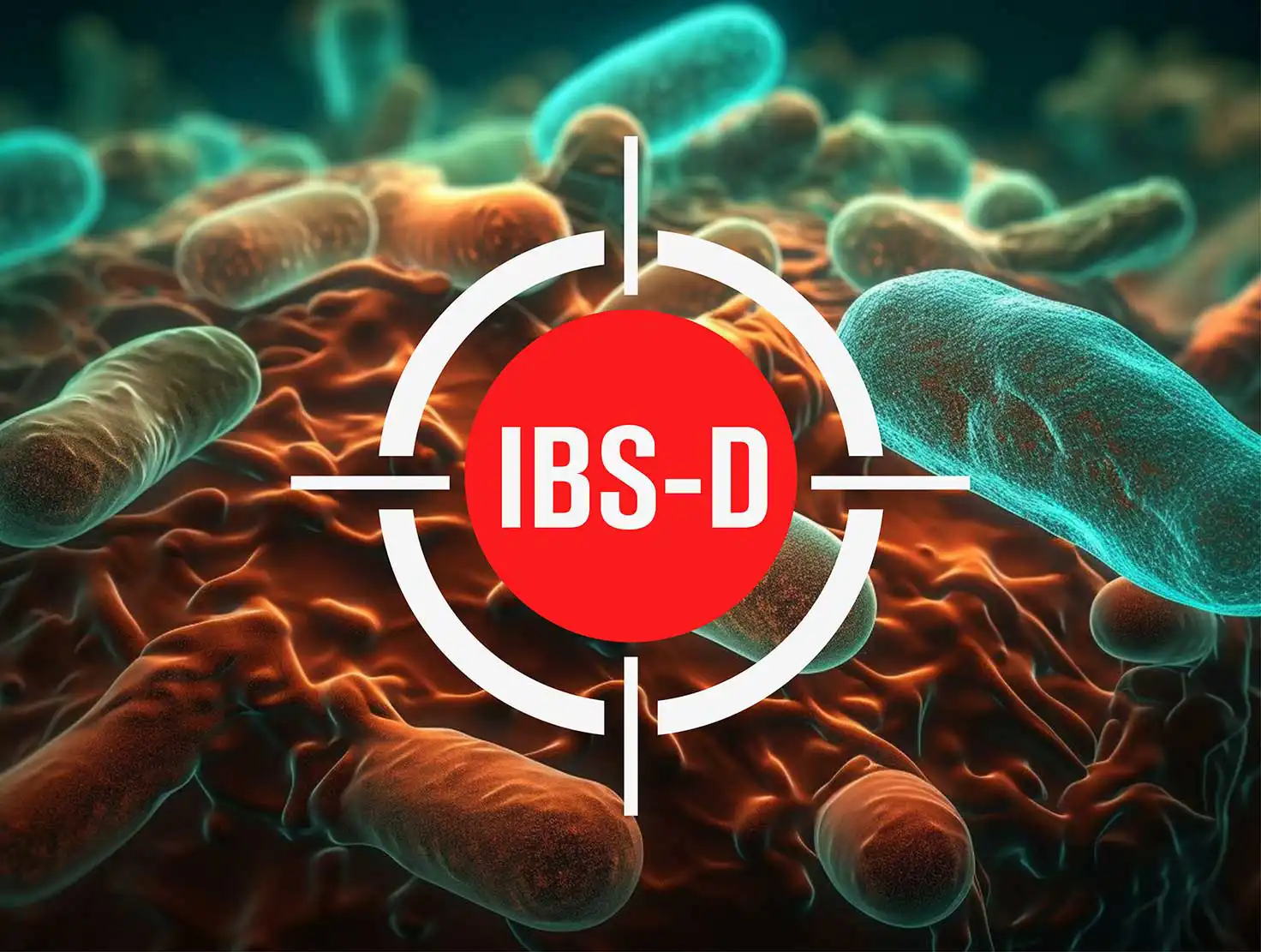CLOSTRIDIUM BUTYRICUM CBM588: THE NEXT GENERATION PROBIOTIC USEFUL IN CASE OF IBS-D

The usefulness of butyrate and the breakthrough offered by C. butyricum
Perhaps not everyone knows that butyrate is a short-chain fatty acid that plays a very important role in gut health. In fact, this substance is the main source of nutrition for the cells of the colon epithelium and contributes to the maintenance of their function and integrity, promoting overall gut health, regulating the inflammatory response and modulating the gut microbiota in a eubiotic sense.
In particular, scientific studies claim that butyrate could play a beneficial role in the context of IBS-D, a subtype of irritable bowel syndrome characterised by diarrhea.
Butyrate is produced by certain bacterial species in the colon during the fermentation of complex carbohydrates, such as dietary fibers. Recent studies have in fact shown that individuals with IBS-D have a deficiency of butyrate-producing bacteria. This justifies the use of butyrate-producing bacteria in the development of specific supplements that taken orally can reach the colon and produce endogenous butyrate.
The promotion of endogenous butyrate production also proves to be an advantageous strategy as it ensures a continuous butyrate supply in all areas of the colon.
A noteworthy example among butyrate-producing bacteria is the special Clostridium butyricum strain CBM588®, which has been registered for many years as a drug in Japan and other Asian countries where it is used to treat inflammatory bowel disease and diarrhea. It has also been identified by Nature Microbiology1 as one of the first and most impactful Next Generation Probiotics, also referred to as live biotherapeutic products.
C. butyricum and improvement of IBS-D symptoms
The efficacy and safety of Clostridium butyricum CBM588® in patients suffering from irritable bowel syndrome with prevalence of diarrhea (IBS-D) was investigated in a 2018 study2 published in a journal of Nature, one of the world’s most renowned international publishing groups.
166 patients with IBS-D, diagnosed according to Rome III criteria, were randomized into an intervention group, consisting of 85 subjects taking C. butyricum for 4 weeks, and a placebo group consisting of 81 subjects taking placebo.
The study compared the severity of IBS-D before and after treatment in both groups using the IBS-SSS (Severity Scoring System), which assesses the following factors:
- Abdominal pain
- Frequency of evacuations
- Stool consistency
- Impact on quality of life
At the end of the study, a significantly greater improvement in symptoms was observed in the group taking C. butyricum. Furthermore, in contrast to the placebo group, C. butyricum had a positive impact on all factors assessed by the IBS-SSS.
In particular, the frequency of evacuation was significantly reduced in the intervention group, on average by almost 2 episodes/day compared to the start of the study, an improvement not observed in the placebo group.
These results confirm the therapeutic advantage in patients with IBS-D through the use of C. butyricum.
1 O’Toole PW, Marchesi JR, Hill C. Next-generation probiotics: the spectrum from probiotics to live biotherapeutics. Nat Microbiol. 2017 Apr 25;2:17057. doi: 10.1038/nmicrobiol.2017.57. PMID: 28440276.
2 Sun YY, Li M, Li LX, Zhai WZ, Wang P, Yang XX, Gu X, Song LJ, Li Z, Zuo XL, Li YQ. The effect of Clostridium butyricum on symptoms and faecal microbiota in diarrhoea-dominant irritable bowel syndrome: a randomised, double-blind, placebo-controlled trial. Sci Rep. 2018 Feb 14;8(1):2964. doi: 10.1038/s41598-018-21241-z. PMID: 29445178; PMCID: PMC5813237., double-blind, placebocontrolled trial.
* Mancabelli L, Mancino W, Lugli GA, Argentini C, Longhi G, Milani C, Viappiani A, Anzalone R, Bernasconi S, van Sinderen D, Ventura M, Turroni F. Amoxicillin-Clavulanic Acid Resistance in the Genus Bifidobacterium. Appl Environ Microbiol. 2021 Mar 11;87(7):e03137-20. doi: 10.1128/AEM.03137-20. PMID: 33483308; PMCID: PMC8091617.
